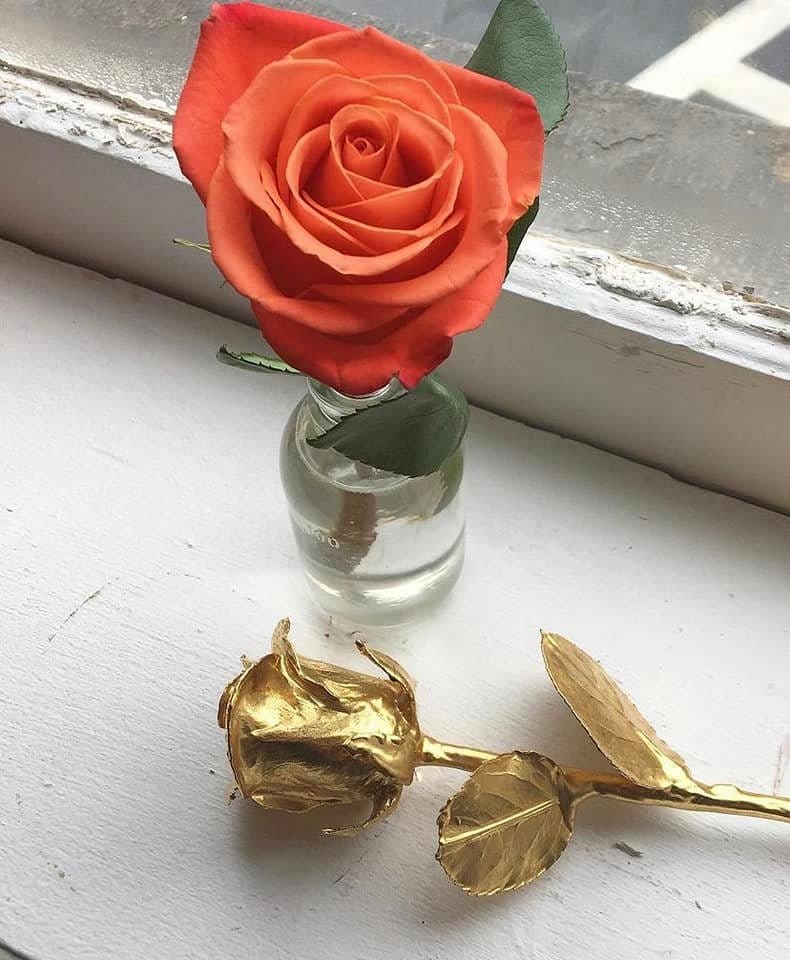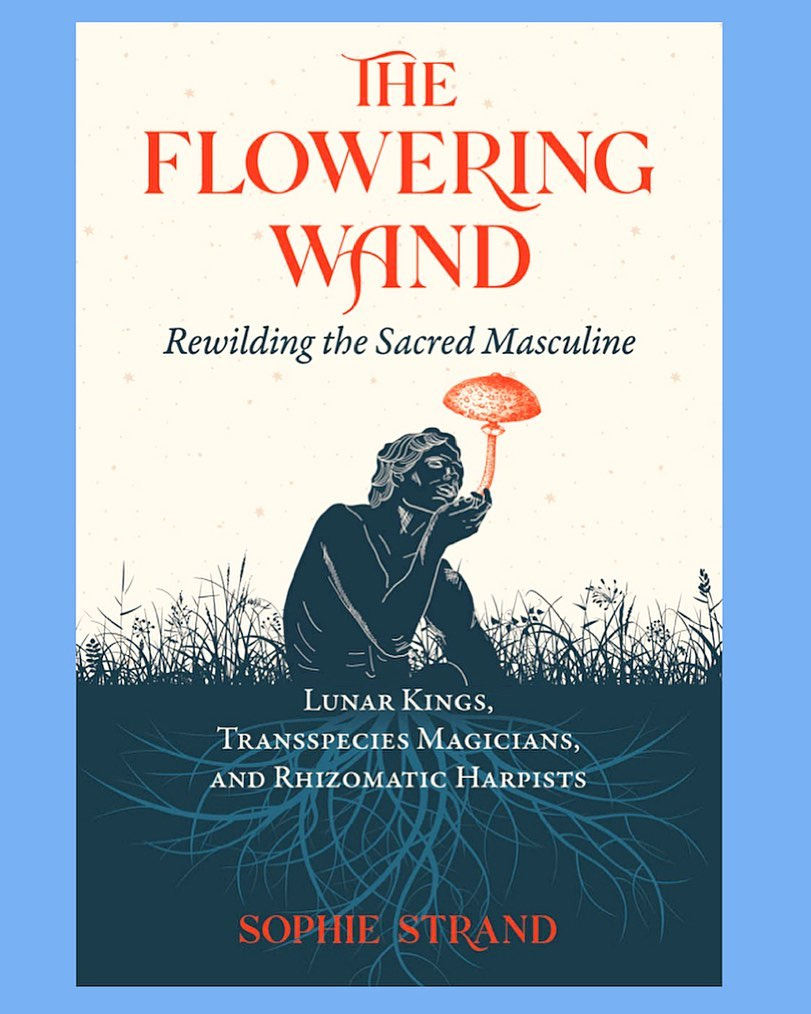Resharing this essay as I navigate some health issues. I hope to share new writing in the coming month. Sending love to everyone who supports this newsletter.
What is Magic?
What do I believe in? The answer activates my intellect. I begin to prepare a long answer about the intersection between spirituality and science, about ritual and song. And then I stop. The only true answer is simple. “Magic. I believe in magic.”
In 2012, during my freshman year at Bard College, my boyfriend broke up with me and I had an abortion complicated by health issues the week before my birthday. Shell-shocked and physically wrecked, I let my friends shepherd me out to the local bar that notoriously served underage girls. It was packed so tightly with college students that you could hardly breathe. My nervous-system was lit up like Christmas tree lights, sparkling with every accidental brush or touch of another body. I felt raw, exposed, and alien. I wasn’t sure which hurt more: my womb or my heart. But I knew that a drink might numb it.
I swam through the crowd, cradling my vodka seltzer, making brief, shouted contact with friends over the techno music. “Are you in my Hinduism course?” A short ginger-haired man asked. “No!” I lied, ducking under someone’s arm. Sufficiently woozy and sad, I leaned against a free space of wall when the clock struck midnight, that instant enshrined in fairytale temporality. Immediately, ten undercover cops pulled out their badges and began a huge sting operation on the bar. It was mayhem. People were running for the door, shoving each other over the bar countertop. My friend was suddenly by my side, trying to pull me through the insanity. “Line up so we can breathalyze you!” shouted a cop, blocking the exit. I swore under my breath. I’d fail the breathalyzer. My parents would hear. It would mar my academic record, a record I envisioned as a stone tablet, reflecting only my best self. When suddenly a very small, unremarkable looking man, with a slightly receding hairline, appeared at my elbow.
“You’ve had a hard time. I thought you might need this,” he said and slipped something heavy into my hand. Then disappeared into the crowd. I looked down, befuddled, to see a golden rose, with details so fine that it must have been fashioned with a microscope in hand. And at that moment, I was inspired. Pulling two of my friends into the bar’s kitchen, I unlatched a window above the sink and we shimmied through, called a cab and saved our academic records. “How did you know to do that?” my friend Hannah asked, breathlessly, as we curved through the country roads that led back to our college dorm. “I don’t know. I just did. Like magic,” I answered.
Later, I examined the golden rose. It must be gilt paint, I figured. Cheap. I asked everyone I knew about the man. No one had seen him. My friend Hannah had witnessed the interaction but couldn’t remember what he looked like. I put it next to my bed. Later that summer I had it looked at by some jeweler and sculptor friends. “I have no idea how this was made. This is real gold and I think it's been directly poured over a rose to produce details that fine,”one of them offered, eyes wide in disbelief. “Yes. Definitely gold. A lot of gold,” someone else confirmed. Over the years I’ve had the rose examined by many different people and no one can understand how it was made. “You should sell it for a lot of money,” an ex told me, and I knew at that moment that the relationship was doomed.
Who was the man? How had he sensed my need for a miracle? Why had he given me the rose? “It is at any rate essential to a genuine fairy-story, as distinct from the employment of this form for lesser or debased purposes, that it should be presented as “true,” wrote J. R. R. Tolkien in his famous essay “On Fairy Stories”. It didn’t matter how. It mattered that it felt like the truest, brightest thing that had ever happened to me. It reminded me that, on the flipside of every anguished moment, is a world of magic with a sense of humor. The fairy isn’t tall and handsome. He’s small and average. He fits into the logic of reality, its texture, while also offering a flower from the other side.
Magic, for Tolkien, was the opposite of the “supernatural”. He argued that human beings in our false sense of superiority are the real supernatural element in every story, always believing we can explain and control the elements. He offers, instead, that fairies are “far more natural than he”. They are the natural miracle of swarming locusts, starling murmurations, rainbows, mushroom fairy rings. Yes, if we work hard enough to explain them, like the rose, maybe we can create a hypothesis for how they arrive, fully-formed and already dancing, but the truth is we cannot recreate the recipe. We cannot manufacture or plan for magic. Magic, for me, is closest to Tolkien’s idea of Eucatastrophe: the happy disaster that arrives inconceivably in the knick of time. The eagles save the hobbits from Mount Doom. Aslan arrives in Narnia and a world of winter relaxes into springtime. The golden rose inspires you to climb out through the kitchen window.
My time at Bard College was full of these uncanny experiences. Disappearing people. Strange animal encounters. Streaking comets that had no astrological confirmation. One night a friend and I were driving back from a local restaurant to our home when, on roads we had driven hundreds of times before, we lost our way. Our cellphones lost their signal. The car clock glitched. We drove and drove through farm fields with no street signs. “I need to get out and pee,” I complained. “Hell no. You are not getting out,” my friend objected. At that moment, a hugged barred owl dropped into the road, his wings outstretched like a giant book falling open to its central pages. We stopped, transfixed, until he took off, hooting. Within seconds of driving again, we were back on the road leading to the restaurant. It felt like we’d been lost an hour, but the clock told us no more than two or so minutes had passed. The Hudson Valley is notorious for these stories about “time loops”, perhaps the inspiration behind Rip Van Winkle.
Magic is a story that, when you share it with other people, threatens to make you look insane. But then you hold out the gold rose and say, “Feel this. Look at this. Tell me how it’s made.”
I can’t explain it. And I don’t know when it will happen again. But it happens all the time. It is, “a sudden and miraculous grace”. It is the open window in the kitchen. The escape from this world, into this world. Magic doesn’t take us out of our ecosystems, it roots us more deeply into them. It gifts you a gold rose and says, “Silly girl. This wasn’t made. It was grown.”
An article I am excited about: Divergent genomic trajectories predate the origin of animals and fungi
A book I have loved recently: Bitch: On the Female of the Species by Lucy Cooke
(Contrary to the rather inept title, this book melts gender binaries in a very delicious way)
A great lecture by Lucy Cooke: Queens of the Animal Kingdom
Join me and Bayo Akomolafe discussing “New Gods at the End of the World: Disabled ecologies, healing, and a mythopoesis of worlds-to-come” with Science and Nonduality on September 7th. You can sign up here.
I’m excited to announce I’ll be the keynote speaker at the Feldenkrais Summit on September 15th. Learn more here.
My book The Flowering Wand: Rewilding the Sacred Masculine is now available for pre-order from all online booksellers here and from my publisher Inner Traditions.
This has been the free version of my newsletter. If you choose to support the paid version of this newsletter, you will receive two newsletters a month featuring everything from new essays, poetry, excerpts from my upcoming books and projects, mythic research, reading lists, poetry, book reviews to ecological embodiment exercises, playlists, personal updates, and generally a whole lot of funk and texture.
I am overwhelmed with gratitude by how many of you have showed up here (and throughout the past year across platforms). As someone struggling to balance chronic illness (and just how expensive it is to be sick in America) with writing, know that you are very practically keeping me alive, keeping me afloat. Thank you deeply. I love you all so much.






Wow. I really love this. One of my favourite words -- and states of being -- is “enchantment”, and I read in your essay an invitation to keep opening ourselves up to magic. I’m also reminded of a conversation I had with a dear friend and confidante, who offers that we must keep breaking our hearts open; it is the breaking open that keeps us sensitive to enchantment and love and magic. Maybe that vulnerable physical and psychic place you were in when you went into the bar was also a broken-openness. You left cracks for the magic (man) to work itself into ✨
Sophie, what a magical essay! The devil--or is it the angel?--is in the details! Hang in there and keep the magic flowing from your pen!